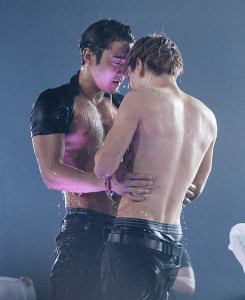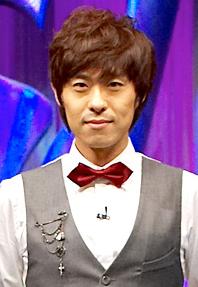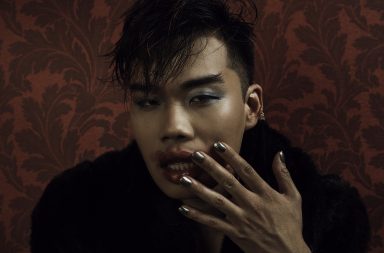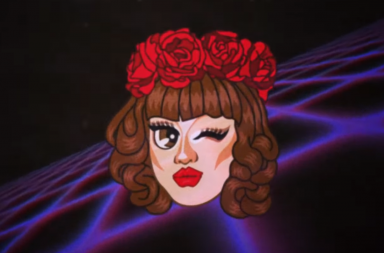 For frequent readers of this site, the issue of homosexuality and alternative gender identification in Korea should be at least somewhat familiar, considering that our writers have covered it extensively. Just last year, Dana wrote a fantastic article explaining the hypocrisy of homoerotic fan service in a country where actual homosexual relations are considered beyond taboo. We’ve also discussed the role of homosexuality in K-dramas, both as a form of minstrelsy and as a serious discourse.
For frequent readers of this site, the issue of homosexuality and alternative gender identification in Korea should be at least somewhat familiar, considering that our writers have covered it extensively. Just last year, Dana wrote a fantastic article explaining the hypocrisy of homoerotic fan service in a country where actual homosexual relations are considered beyond taboo. We’ve also discussed the role of homosexuality in K-dramas, both as a form of minstrelsy and as a serious discourse.
We’ve managed to approach this topic from different perspectives to tie into Korean pop culture. Unfortunately, we are largely limited by the fact that with few exceptions, LGBT individuals are not a common occurrence in K-pop. In general, the role of the LGBT community as active participants in Asian pop culture as a whole has been largely minimal. That is to say, until this occurred.
[youtube http://www.youtube.com/watch?v=16qRF0TL3sk]“Opo, tomboy po ako.” (Yes, I am a lesbian)
Last month, on national television, Filipino singer and former Glee actress Charice publicly came out after months of speculation and rumors over her sexual orientation. As one of the most successful Asian musicians on the world stage, this is likely to have a substantive effect on how some in Asia view the LGBT community. Of course, it is impossible to create any type of direct comparison between Charice and any potential closeted Korean pop star, considering the vast cultural differences between the two countries.
With 73% of respondents in a PEW research poll agreeing that homosexuality should be accepted by society, Filipinos are among the most socially liberal societies in all of Asia. By comparison, only 39% of South Koreans gave a positive response on that question. Arguably, the fact that Charice is comfortable being open about her sexual orientation is in and of itself evidence of the difference between the two countries.
 In South Korea, openly LGBT individuals often face rejection by their families and are forced to live as outsiders in their own homeland. Though very few entertainers have ever come out, those who have were fired from their jobs and denied future employment. Many, including gay actor Kim Ji-Hoo and transsexual actress Jang Chae-Won, have even committed suicide.
In South Korea, openly LGBT individuals often face rejection by their families and are forced to live as outsiders in their own homeland. Though very few entertainers have ever come out, those who have were fired from their jobs and denied future employment. Many, including gay actor Kim Ji-Hoo and transsexual actress Jang Chae-Won, have even committed suicide.
You might be asking what the relevance of Charice’s sexuality is to K-pop if there is such a stark difference in how many Filipinos and Koreans view homosexuality and gender identity. The answer is quite simple. No matter how socially conservative South Korea may seem on this issue today, they cannot escape the relentless march of progress that has been occurring throughout the world. Granted, only 39% of South Korean respondents in the 2013 PEW research poll indicated that they consider homosexuality to be acceptable; but this is still a 217% increase from just six years ago in 2007, when a miniscule 18% of South Koreans gave an affirmative response on that same question.
Though the present may seem somewhat bleak for LGBT Koreans, it is only a matter of time until Korea is forced to seriously confront the existence of homosexual entertainers in its music industry. It is likely that Korea, like most societies, will first gain widespread exposure to LGBT individuals through the media. Perhaps the current situation with Charice in the Philippines will give us a better idea about how this will play out.
How difficult will this road be? Very. The rigidly structured and company-controlled nature of idol music in Korea is far less conducive to anything that has the potential to affect the bottom line. It is unlikely that any changes will occur in Korea until support for LGBT individuals is high enough that a performer’s sexuality can draw in more consumers that it alienates. Unfortunately, this creates a bit of a Catch-22.
Until there is widespread public acceptance of homosexuality, there will be no openly gay idols. However, without exposure to LGBT individuals through the media, it is unlikely that views on homosexuality will liberalize any time soon. For now, let us use this as a social experiment to explore how exactly an openly gay entertainer shapes the public’s perception of homosexuality. Maybe one day not so long from now, the world of K-pop will have it’s very own Charice Pempengco.
(ABC News, PEW, Wall Street Journal, Queer TV. The Korea Herald, Images: credit to owners)


